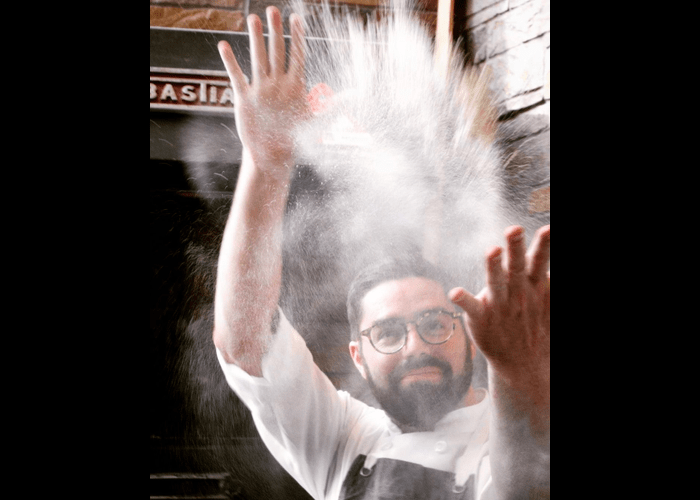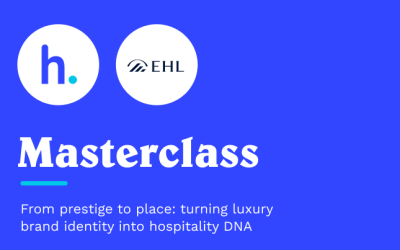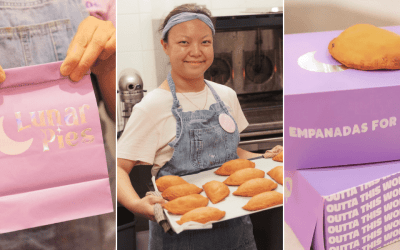How a holiday in Russia changed Kevin Keating’s, Head Baker at Eataly NYC, life forever.
Kevin, what made you change your life?
So I was working in digital advertising on Broadway, and I had this thought that I was done with that moment of my life and ready for something else. However, at the time I really had no idea of the direction I was going. I was happy with life, but I always felt that something was missing.
It was a trip to Russia, to visit my wife’s family, that helped me realise something bigger in life was possible. And really it all came down to a slice of black bread, the simplicity of it, but also the beauty behind the process of making it, and the history of bread.
Until that point I had always had this idea that if I could go back and start over again, I would go to culinary school and become a chef. And I thought about going to culinary school in New York.
While I was researching, I came across this program at the International Culinary Centre in NYC, and they had a joint program advertised with ALMA, made for international students to learn Italian cuisine - in Italy. It sounded like the most incredible thing. To experience the school, the setting, and the most prestigious culinary experience in Italy.
What did you enjoy about ALMA?
When I first walked in, I just thought, wow. It is more than you could ever imagine or hope for - it is basically a castle, a palace with this huge courtyard and all the students and people moving around. It felt like a dream. And then, when I knew that the level of instruction and the philosophy of ALMA matched the spirit of the place, that the environment and the learning came together in the most amazing package.
The excellence that is demanded of the chefs and the students is phenomenal. Initially you study the basics of culinary arts with an Italian focus, then move into areas such as wine tasting, the history and culture of Italian cuisine in addition to the kitchen work. It was a real deep dive into the philosophy of how to be a chef, how to think like one, how to be someone who understands food, history, and sustainability, and then how to create knowing all of that.
Why bread of all things?
Why bread, well, it literally just happened. It was totally unplanned!
In the beginning, I was making bread at home, playing around with sourdough starters. Right around this time ALMA announced that they were starting a bread making course. And I just knew it was meant to be, so I contacted them and explained that even though this course is made for Italian students, I think I can do it. So they let me.
The first weeks were really hard, learning the recipes, the Italian I needed, working with Scilians with their very different accents, in fact, every day I left with a headache from the mental aerobics! But quickly it was clear that I was really absorbing the material, so much so that I started helping and tutoring the other students on the course.
The ALMA bread course was so deep, it was not about recipes, but about the fundamentals of bread and bread making. How does bacteria work? What’s the role of flour? How do we rate the different flours? What about the yeast? The water? Even the salt was a concept. We learnt how you put that all together, to achieve what you want - a thicker crust, a thinner crust, more or less colour?
Bread felt like the connection between my previous life in the digital world, where I focused on innovation and technology, and this culinary world I was now in. It was fascinating to think about that, to think of bread as a fundamental foodstuff that was ignored, but one that sings to your soul, to your foundational memories of eating, of sharing, of convivial behaviour. It is so powerful, but also so normal that it can be forgotten.
Bread helped me see the synergies in food. The connection between ingredients, the process of creation, time, and even life. Bread is so simple - it has four ingredients. But like anything, the way you combine them, the care and attention you give them can make it something that can make you cry with joy.
After the course with ALMA finished, they actually hired me as an assistant instructor, to work on the first bread and pastry course for international students, which was of course an amazing experience. I developed the recipes, all sorts of translations, developed the course materials and so on. Seeing ALMA from the other side, the internal side was enriching, to be able to be an ambassador for the school and its philosophy. What an experience as an American in Italy.
Tell us about your Hosco experience
ALMA introduced us to many people and concepts through the course, but when it finished, I was somewhat at a loss on how to proceed. I had never actually looked for a job in the culinary world, so I thought, OK, how do I do this?
When they showed us Hosco, and I saw the jobs available all around the world, I was immediately more comfortable, as it felt like a place I knew already from my previous life. Before I saw Hosco, I couldn’t even think of where to look - actually, I found myself walking around with a printed CV!
Hosco had a wealth of high quality listings, from partners with ALMA and beyond. It felt like they were real roles, with companies that were definitely going to pay you, give you the right contract and so on.
For an American in Italy, this was reassuring. And the platform really showed me the breadth of opportunities across the world. I actually think I got my first proper role through Hosco in the end, as an instructor near Bologna!
What three adjectives describe your food?
I will start with playful. Bread is where I get to play with recipes, with the foundational aspects of food, so it’s great to have fun there.
Then I would say provocative, indulgent. I know it is two words, but that’s what I aim for - changing your mind about what bread can be.
And finally, well, I think soulful. Bread and its smell are so evocative to me and for many millions more. It is the first soul food! Deep down it’s a pleasure food, and we should treat it that way.
And finally, what is your guilty food secret?
Well I would say this one, especially when I was living in Italy, that it felt like a guilty food secret. It’s McDonald’s french fries. I love them. I grew up in Las Vegas, in general, we don’t have much access to fresh food - I actually only ate my first fresh tomato at 20 years old!
In all honesty, the humble french fry is amazing. It is so basic, just like bread - they are just potatoes and oil, salt. Nothing more. Walking by that smell, it takes me back to my childhood. Fries are such a simple food but they fire on all cylinders, they pretty much always deliver.
And they are a big part of my life and American culture. They connect to the progress made over the last hundred years or so, this massive ability to feed people. And yes, there are bad elements of American food culture, but it’s easy to pick fights against that, so I prefer to focus on the good, on the progress. Rather than hide from it, I try to understand it and engage with it.
It's something I learned in Italy. As an American, trying to see how I fit in Italy with my bit of Italian heritage, but feeling, not Italian, obviously, and feeling very self-conscious of my Americanness. And because of all these reasons, at a certain point, I started to accept it and realized, wait a second, there's something really important about that: it's who I am. And rather than try to run away from that, I turned to it instead.
Check out all of the courses ALMA offers through Hosco, here. You will find courses on pastry, Italian cuisine, baking, pizza making, gelato - simply click to see the full list.
And if you are looking for a chef or patisserie job anywhere in the word, Hosco has you covered. Search our directory of quality chef jobs in almost every destination you can think of, here.




